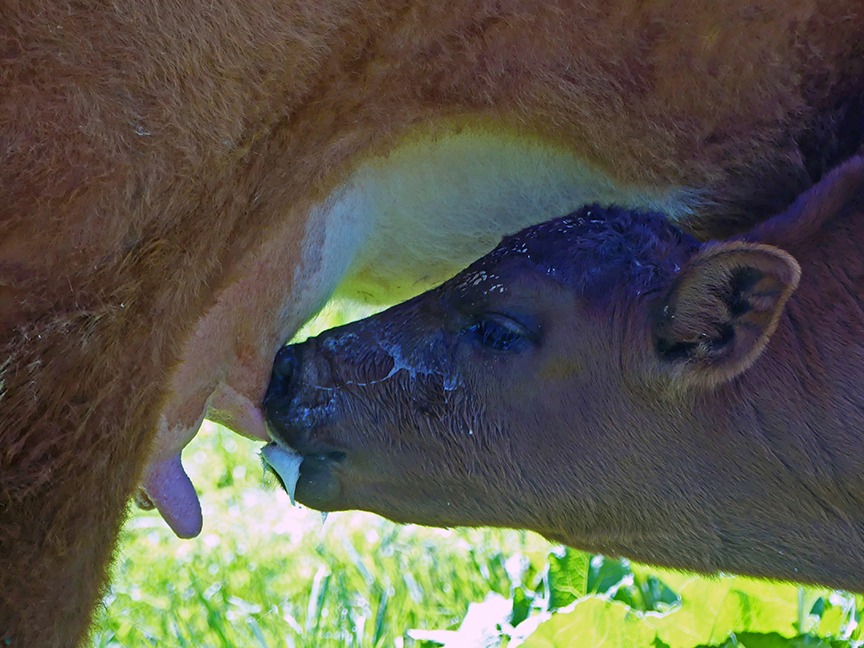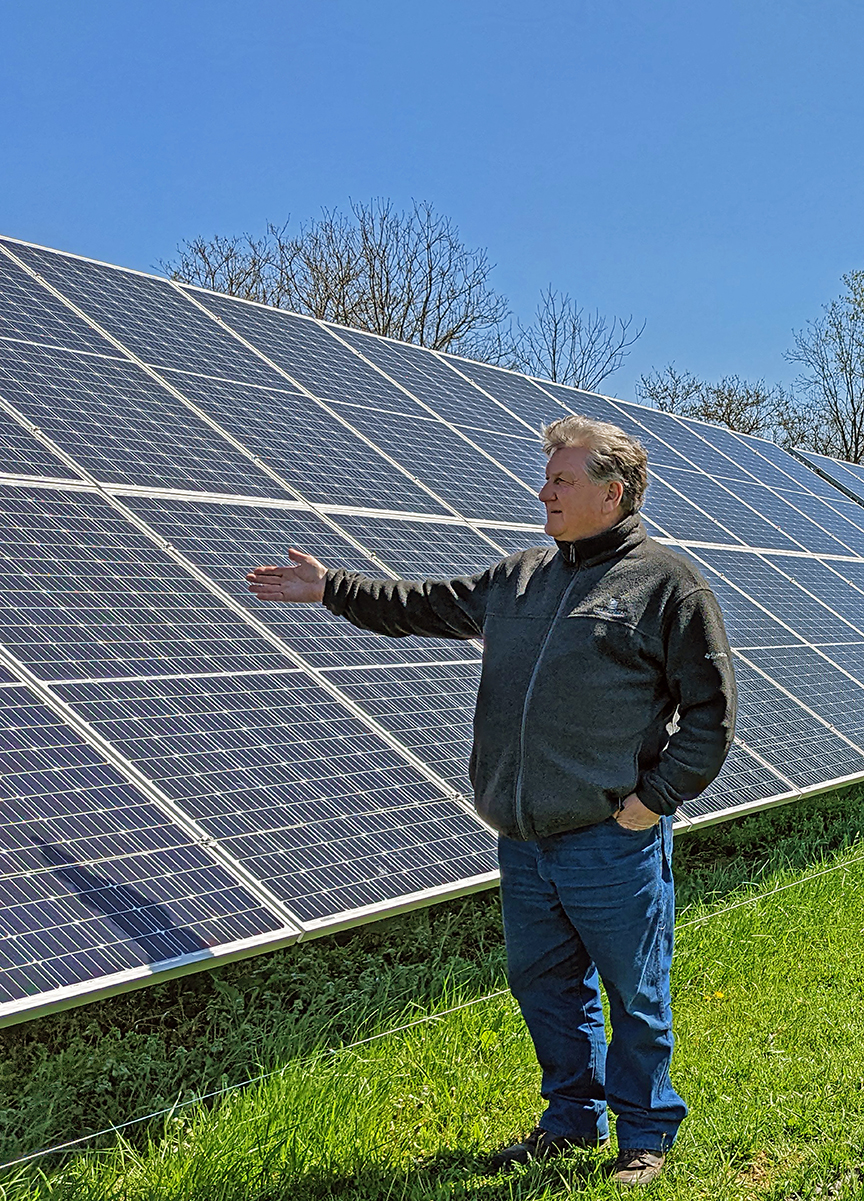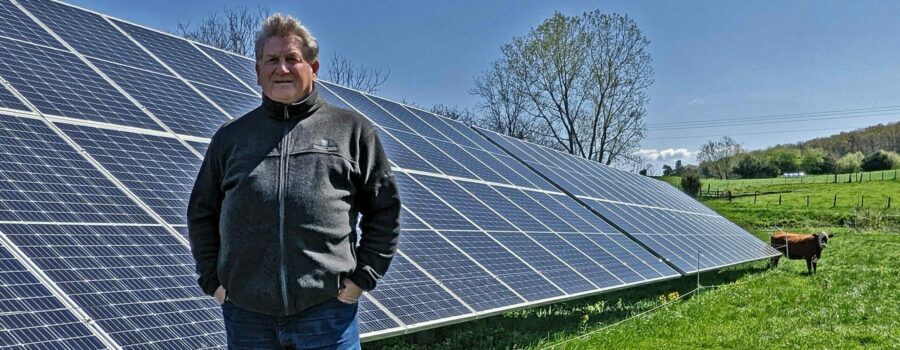Phil and Brenda Liskey consider their family farm in northwestern Augusta County as part of their life journey. Phil, 64, and Brenda, 65, both grew up on Shenandoah Valley farms before heading off to college. Brenda used her degrees to teach elementary school and special education, while Phil found himself using his agricultural business degree with Rockingham Co-op.
Their hearts, however, were drawn to the land where they wanted their children to experience the quality of life that comes from growing up on a farm. After looking at 25 to 30 places, they landed on the farm they now call Golden Spring Farm. It was affordable, probably because it was in need of some tender loving care.
That was in 1985. Two years later, Phil left the co-op in order to put his years of experience in animal nutrition to good use by opening his own animal feed store. Farm Choice, Inc. today has expanded far beyond animal feed to include countless products that might come in handy on the family farm.
The farm and store journey that they launched more than 30 years ago has also been an environmental project as they learned to be good stewards of the land. Through best management practices, they brought Golden Spring Farm back to life by taking a minimalist approach to chemicals, fencing off creeks, and establishing a wildlife plot with nut and berry plants, around the farm’s perimeter.

A calf enjoys a meal from its mother at Golden Spring Farm in Augusta County. (Photo by Nancy Sorrells)
“It has been good health wise for the children growing up on the farm. We try to be as environmentally friendly as possible. We both grew up with the idea that we have to be good stewards of the land because we are just here temporarily,” the couple explained.
In 2017, Brenda and Phil took the next step in their stewardship journey by installing solar panels at their store. Then, in 2020, they put a ground-mounted solar array at one end of the poultry houses and another one in a field behind their home.
The result is that 100% of the electric bills at the store, at the poultry houses, and at their house are covered. The only bill they receive from Shenandoah Valley Electric Co-op at the farm and Harrisonburg Electric at the store is the small meter fee. All the electric usage, which amounts to about $650 a month just for the poultry houses, is offset by the energy produced by their solar panels.
“Solar panels were the next step in our environmental journey. We used two different local companies to install the panels and liked them both,” Brenda said.

(Photo by Nancy Sorrells)
Phil explained that they financed the panels with a low interest loan over a period of 10 years. “The monthly bill for the loan is exactly the same as the electrical services bill was so we don’t even notice it. The payment for the loan and the electric bill is the same so the cash flow is the same. In five years more years at the store and eight more years on the farm we won’t have any bill at all so this is a win-win,” Phil said.
When asked about how many solar panels he installed or what the kilowatt output was, he answered with a smile that he had no idea.
“I don’t pay attention to the actual specs. What I care about is that I don’t get an electric bill for the farm, the house or the store,” he said.
Phil and Brenda said that they have been pleased with the addition of solar to their operations. “I don’t know why anyone would not do it,” Brenda said of the addition of solar to the farm portfolio.
A visit to the solar array behind the poultry house reveals that the cattle do not seem to mind either as a few animals had been using the underside of one row of panels that morning to break the brisk winds and garner shade from the hot morning sun.
The small cow-calf operation that the Liskeys operate fits in to the environmental practices of the entire farm. Lush, green farm pastures, sectioned off with strands of electric fence, provide the multi-colored herd of moms and calves as well as a big Angus bull with plenty of nutrition as they rotate from field to field.
“The electric fence is a psychological barrier, not a physical barrier,” Phil explained. Because the Liskeys’ cattle already know the meaning of that thin strand of wire, he has strung it closely around each array to keep the animals from rubbing up against and damaging the solar panels. There is still enough room for the animals to get under the panels for shade and they are not shy of taking advantage of what they probably consider some pretty odd-looking “trees” in their pasture.
“It’s part of our continuing lifestyle,” Phil said of the solar arrays. “Farming is a lifestyle. Promoting good environmental practices is a lifestyle. Solar is just part of the package of promoting those good practices.”
Perhaps the post on the Farm Choice Facebook page five years ago when the store went solar best summed it all up: “We have a new crop. We are harvesting solar energy.”

